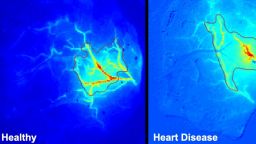University of Sheffield researchers are transforming the experience of ageing
Banner hidden
Finding treatments for the root cause of ageing and disease.
Helping people live healthier, independent lives for longer.
This is the future.
And it will be Sheffield made.
University of Sheffield researchers are transforming the experience of ageing
Over 60% of people aged over 65 have multimorbidity, the presence of two or more chronic health conditions. The Healthy Lifespan Institute, at The University of Sheffield, is the UK’s first research institute entirely dedicated to the understanding and prevention of age-related disease, multimorbidity and frailty.
We are increasing understanding of the ageing process across the lifecourse. With this knowledge we can recommend healthcare, environmental and behaviour changes for people much earlier in life, to prevent multimorbidity and frailty. Our research is helping people live healthier, independent lives for longer.
We want to change how our healthcare system treats age-related disease
Currently diseases, like diabetes, dementia and cardiovascular disease are treated individually. Doctors prescribe one pill or more per disease, so patients with multimorbidity take lots of separate medications. This approach risks “polypharmacy” which is where drugs either become less effective when mixed with other drugs, or cause adverse side effects.
This “single-disease model of care” focuses more on treating symptoms of age-related disease, and not the cause. We’re calling for a move away from the single-disease model of care and a greater focus on the root cause of age-related disease and multimorbidity.
Understanding the interconnectivity of diseases and their shared root cause means we can find drugs, known as geroprotectors, that can treat multiple conditions at the same time. These drugs could not only reduce risk of polypharmacy, they could even prevent the onset of new related medical conditions.
We are using big data and machine learning to identify how age-related diseases cluster together. For example, do people with heart disease have a higher likelihood of developing dementia. Using this approach, we can identify causes that lead to the development of groups of diseases and find treatments that prevent or slow their progression.
To stay up to date with the latest world-changing advances from the University of Sheffield, sign up to receive our briefing.





